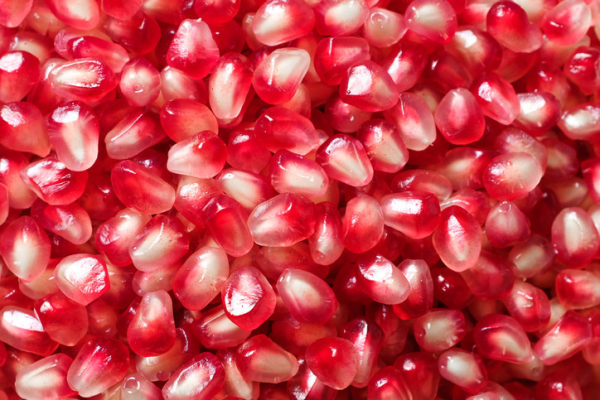
Ever see ads for products that promise to supercharge immunity? Activate your body’s natural defenses? Support a healthy immune system while delivering a potent boost derived from nature’s hottest immune-enhancing ingredients?
While the words may change to reflect the latest trends, the claims certainly sound amazing. But do the multitude of products promoted as immune boosters actually work? What steps can we take to support the immune system? Both are important questions, especially in the wake of a deadly pandemic and as flu and cold season arrives.
IV drips, supplements, cleanses, and superfoods
The lineup of immune-boosting products and advice includes:
- Home intravenous (IV) drips. Want a health professional to come to your home with IV fluids containing various vitamins and supplements? That’s available in many US cities, and some companies claim their formula is designed to supercharge immunity. These on-demand IV treatments aren’t risk-free and can be quite expensive.
- Vitamins and supplements. Popular options include turmeric, milk thistle, and echinacea, often in combination with various vitamins. Hundreds of formulations are available.
- Superfoods and foods to avoid. If you search online for “foods to boost the immune system” you’ll see thousands of articles touting blueberries, broccoli, spinach, dark chocolate, and other foods to keep infections away. There’s also a list of foods to avoid, such as sugary drinks or highly processed meats, because they’re supposed to be bad for your immune system.
- Cleanses and detox treatments. No doubt you’ve seen pitches for cleanses and detox products intended to remove toxins from the body. Their marketing warns that the environment is full of harmful substances that get into the body through the air, water, and food, which we need to remove. Advocates suggest that, among other harmful effects, these often unnamed toxins make your immune system sluggish.
Are the heavily marketed IV drips, supplements, or detox products endorsed by the FDA?
No. In fact, the standard disclaimer on supplements’ claims of immune-boosting properties says: “This statement has not been evaluated by the FDA. This product is not intended to diagnose, treat, cure, or prevent any disease.”
Yet sellers are allowed to use phrases like “boosts immune function” and “supports immune health.” These terms have always seemed vague to me. More importantly, they’re confusing:
- Boosting immunity is what vaccinations do. They prime your immune system to help fight off a specific infectious organism (like the flu shot before each flu season).
- Immune support typically describes vitamins such as vitamin C, or other nutrients necessary for a healthy immune system. It’s true that a deficiency of vital nutrients can cause poor immune function. But that doesn’t mean a person with normal levels of nutrients can expect supplements to improve their immune system.
Can products marketed as immune boosters actually boost immunity?
Unless you have a deficiency in a key nutrient, such as vitamin C or zinc, the short answer is no.
That is, there’s no convincing evidence that any particular product meaningfully improves immune function in healthy people. For example, results of studies looking at various supplements for colds and other similar infections have been mixed at best. Even when taking a particular supplement was linked to reduced severity or duration of an infection like a cold, there’s no proof that the supplement boosted overall immune function.
This goes for individual foods as well. None has ever been shown to improve immune function on its own. It’s the overall quality of your diet, not individual foods, that matters most. A similar approach applies to advice on foods you should avoid, such as sugary drinks or highly processed meats: the best foods to avoid in support of your immune system are the same ones you should be limiting anyway.
How to get the most out of your immune system
It’s not a secret and it’s not a product. What’s good for your overall health is good for immune function. The best ways to keep your immune system at peak performance are:
- Eat well and follow a heart-healthy diet, such as the Mediterranean diet.
- Exercise regularly and maintain a healthy weight.
- Don’t smoke or vape.
- If you drink alcoholic beverages, drink only in moderation.
- Get plenty of sleep.
- Minimize stress.
- Get regular medical care, including routine vaccinations.
- Take measures to prevent infection such as frequent hand washing, avoiding people who might have a contagious illness, and wearing a mask when it’s recommended.
This list probably looks familiar. These measures have long been recommended for overall health, and can do a lot to help many of us.
Certain illnesses — HIV, some cancers, and autoimmune disorders — or their treatments can affect how well the immune system works. So some people may need additional help from medications and therapies, which could truly count as immune boosting.
The bottom line
Perhaps there will come a time when we’ll know how to boost immune function beyond following routine health measures. That’s simply not the case now. Until we know more, I wouldn’t rely on individual foods, detox programs, oral supplements, or on-demand IV drips to keep your immune system healthy, especially when there are far more reliable options.
About the Author

Robert H. Shmerling, MD, Senior Faculty Editor, Harvard Health Publishing; Editorial Advisory Board Member, Harvard Health Publishing
Dr. Robert H. Shmerling is the former clinical chief of the division of rheumatology at Beth Israel Deaconess Medical Center (BIDMC), and is a current member of the corresponding faculty in medicine at Harvard Medical School. … See Full Bio View all posts by Robert H. Shmerling, MD